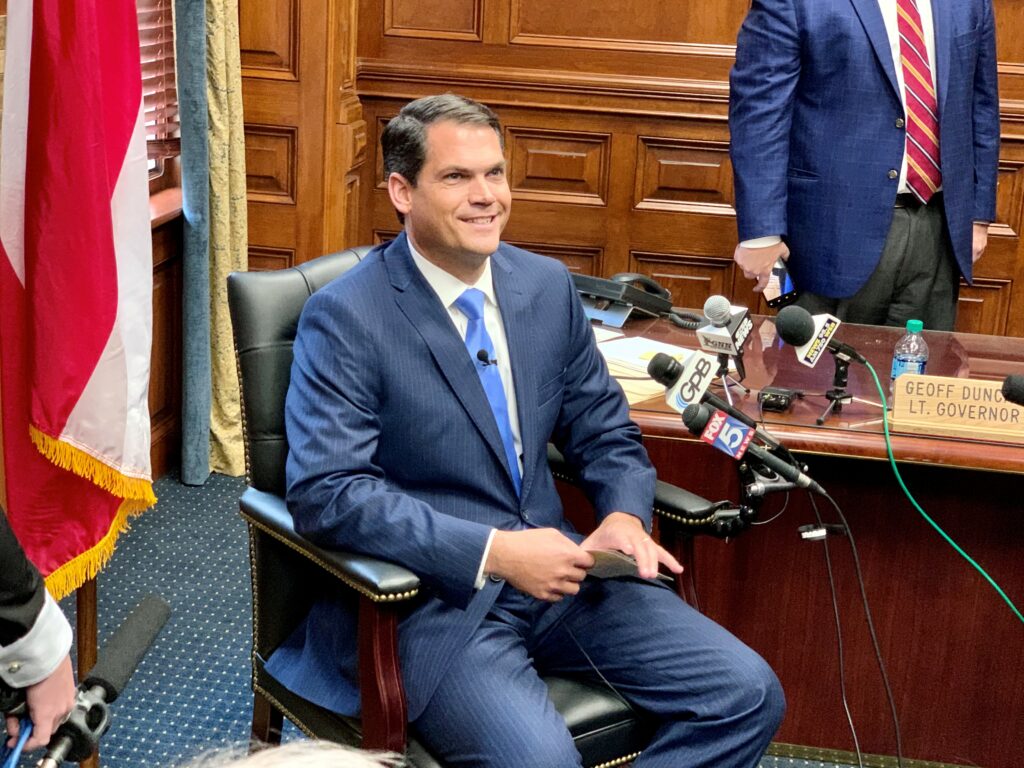
ATLANTA – Lt. Gov. Geoff Duncan set an ambitious agenda Monday for a high-profile group of political, business and academic leaders he is looking to for ideas on how to make Georgia the technology capital of the East Coast.
The Georgia Innovates Task Force, co-chaired by former U.S. Sen. Johnny Isakson and Georgia Tech President Emeritus G.P. “Bud” Peterson, held its kickoff meeting to hear Duncan’s charge to the group and dole out assignments for the work ahead.
“We’re not looking for short-term sugar highs,” Duncan said. “We want this group to truly produce meaningful ideas.”
With a background in business, Duncan has made growing Georgia’s role as a technology hub a key priority, both during his 2018 campaign and since taking office last year.
He announced the formation of the new task force last month and named some of Georgia’s best-known business leaders to the panel. The list includes Paul Bowers, chairman, president and CEO of Georgia Power Co.; Marty Flanagan, president and CEO of Atlanta-based Invesco; and Raphael Bostic, president and CEO of the Federal Reserve Bank of Atlanta.
The task force also includes representation from areas of Georgia outside of Atlanta, including Lori Durden, president of Ogeechee Technical College in Statesboro, and Barbara Rivera Holmes, president and CEO of the Albany Area Chamber of Commerce.
Peterson said other states are vying with Georgia to become the technology capital of the East Coast. But Georgia enjoys some advantages in the competition, including the presence of the Port of Savannah, Hartsfield-Jackson Atlanta International Airport, the U.S. Army Cyber Command in Augusta and the federal Centers for Disease Control and Prevention in Atlanta, he said.
Georgia also boasts a diverse array of outstanding colleges and universities, Peterson said.
“We can leverage those institutions to help create an educated workforce that can drive initiatives like this,” he said.
Peterson divided the task force into four subcommittees to work on separate aspects of the technology push including innovation, education and training, entrepreneurship and initiatives aimed at rural communities.
The subcommittees are to report back with initial recommendations at the next meeting of the task force in April. Final recommendations are expected by mid-summer.
Isakson said he’s optimistic the panel’s work will pay off.
“If we can in a timely fashion develop goals and apply our brain power and our dollar power, we can do a lot of things,” he said.
